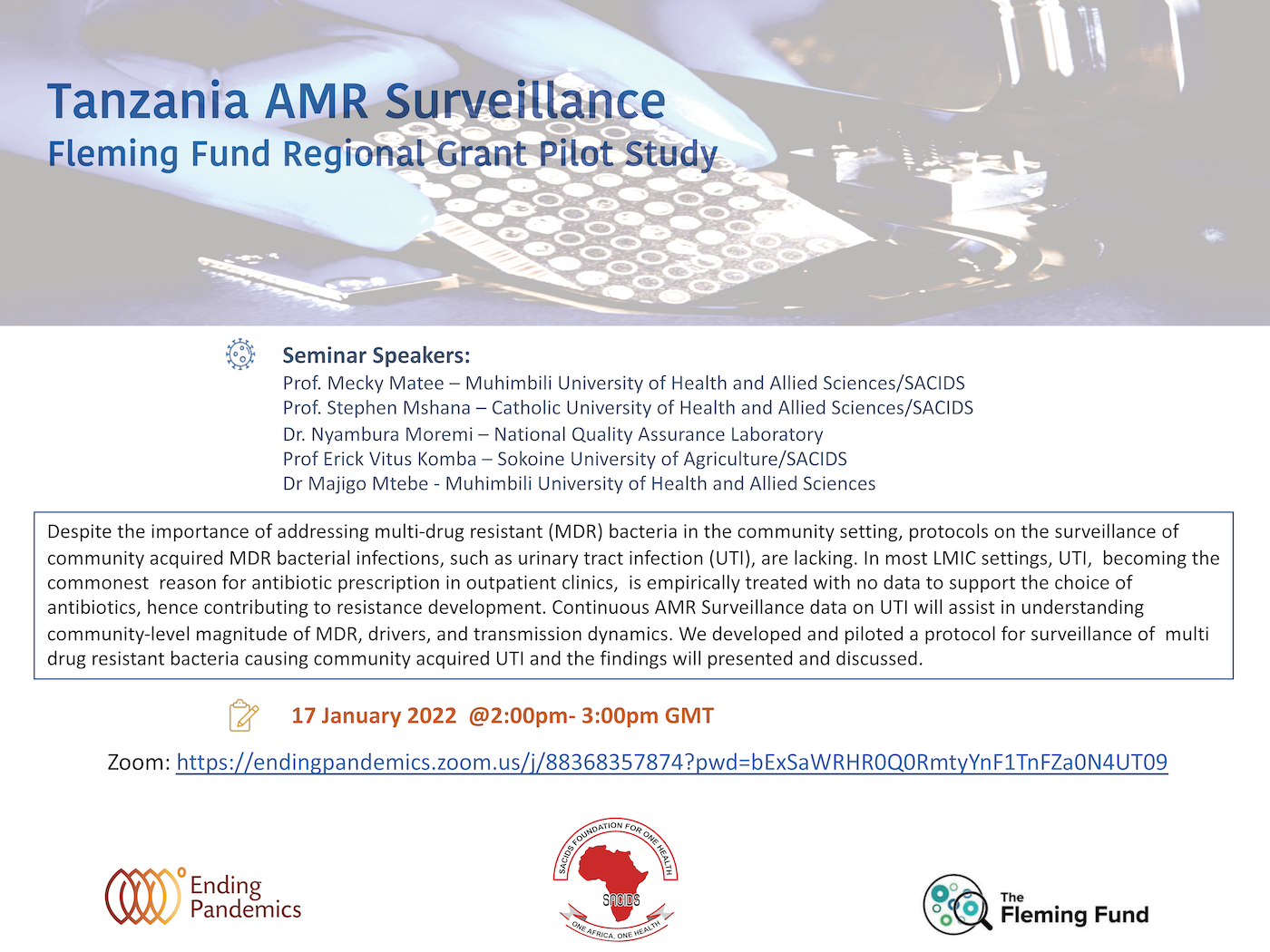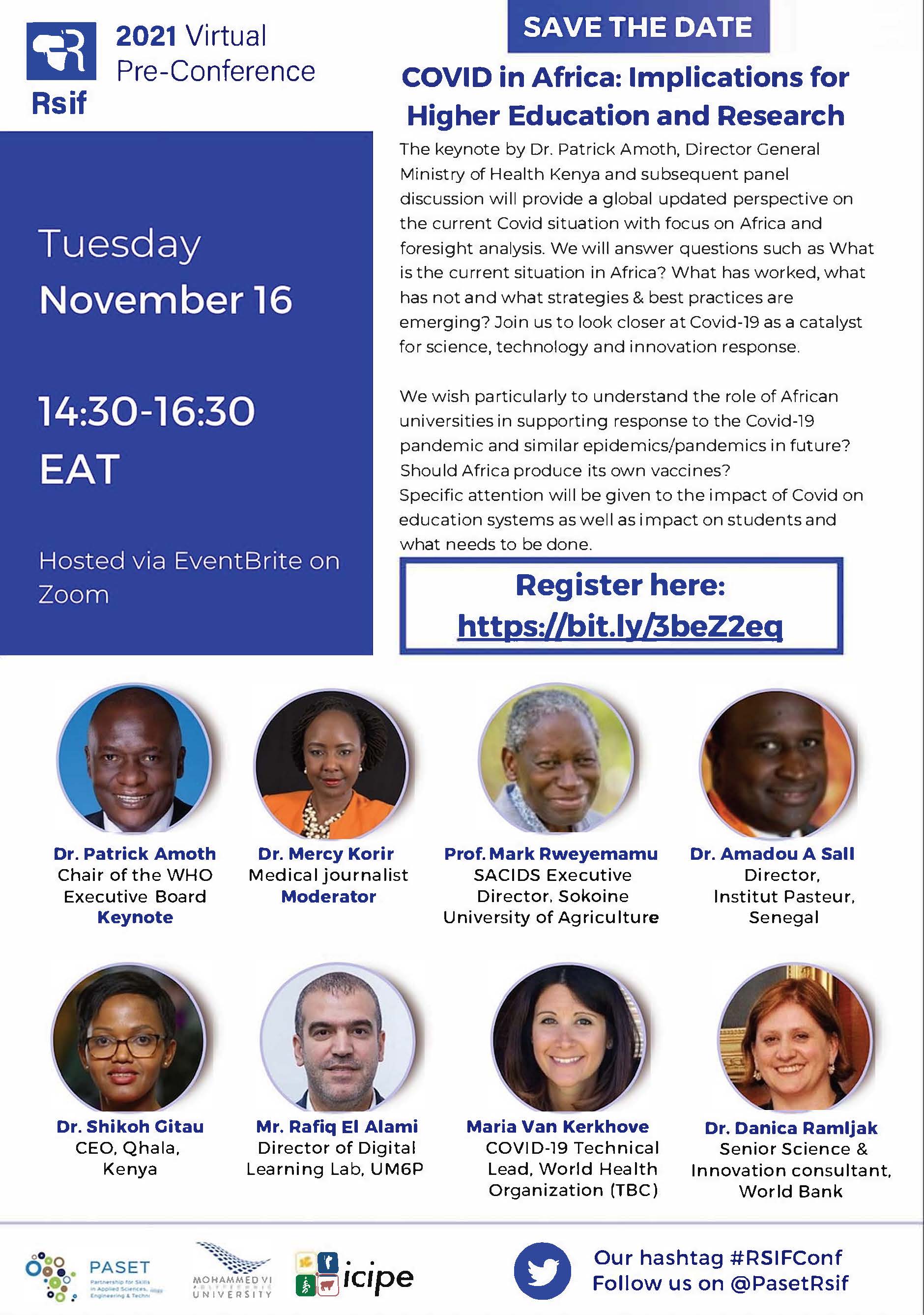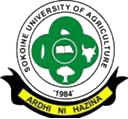SACIDS ISAB and Governing Board meetings
Posted: July 19, 2022The SACIDS International Scientific Advisory Board (ISAB) and Governing Board Meetings will be held at the Edward Moringe Campus of SUA on Tuesday 16th August 2022. The event will be broadcast via ZOOM too.
THE LAUNCH OF OR TAMBO AFRICA RESEARCH CHAIR
Posted: July 19, 2022This official launch of the Chair will be held at the Edward Moringe Campus of SUA on Monday 15 August 2022 from 08:30 AM to 05:00 PM EAT. 2-5pm EAT. The event will be broadcast via ZOOM too.
SACIDS Upcoming Events
Posted: February 18, 2022
Inception Meeting
Strengthening Capacity for Tanzania National One Health Early Detection of and Response to Infectious Disease Epidemics and AMR (OneHealthDetect-TZ)
WHAT: Lessons learnt from the past outbreaks have demonstrated that the weaknesses of the health delivery systems (including governance, infrastructure, surveillance, diagnostic capacity and case management) have largely contributed to late detection and response as well as other difficulties associated with outbreaks control. The COVID-19 pandemic, the Ebola Virus Disease epidemic in West Africa, the widespread antimicrobial resistance (AMR) and the relative high burden of communicable diseases in Africa, have emphasised the necessity for having, in situ in Africa, well-coordinated national action plans for health security, regional and continental coordination. For efficiency, all should be supported by relevant One Health expertise for disease surveillance and pathogen detection/identification especially at the human, animal and environment interface. SACIDS Foundation for One Health (SACIDS) was set up in 2008 to develop such capability and SACIDS Member Institutions[1] have provided expertise to support national COVID-19 response.
At the official level, the Tanzania government has been progressively strengthening its capacity for the national health security agenda, national action plans for health security and for AMR and for One Health coordination. Tanzania has developed several policy guidelines/plans using a One Health approach. They include: (i) the National One Health Strategic Plan, 2015 and All-Hazards Public Health Emergency Response Plan. In 2016 Tanzania was the first country globally to volunteer to subject itself to the Joint External Evaluation coordinated by the World Health Organization (WHO). Soon after, Tanzania also participated in the World Organization for Animal Health (OIE) Performance of Veterinary Services PVS) and Gap Analysis. This led to the development of the Tanzania National Action Plan for Health Security in 2017 and the National Action Plan on AMR in 2017, through an inter-sectoral collaboration and under the authority of the Prime Minister’s Office. During 2018/2019, Tanzania set up the National One Health Platform in the Prime Minister’s Office (PMO). This happened after a 5-year evolution process that involved extensive engagement with a wide selection of national and external experts and institutions as well as through the results from various Technical Working Groups, as summarised in Fig. 1, published by Kitua, A.Y., Scribner, S., Rasmuson, M. et al. Building a functional national One Health platform: the case of Tanzania. One Health Outlook 1, 3 (2019). https://doi.org/10.1186/s42522-019-0003-0. Meanwhile at the Africa continental level, the African Union set up the Africa Centres for Disease Control and Prevention (Africa CDC) in 2017.
Our overarching goal is to enhance multisectoral collaboration for early disease outbreak detection and response in humans and animals[1] in Tanzania. By pioneering the founding blocks for an outbreak intelligence hub to receive, interpret, and visualize EBS data from multiple sources across multiple sectors related to public health. Such data/information will feed into shared One Health Epidemiological Operating Center (OHEOC) and inform the response teams on what, where, when and how to focus efforts. To achieve this, it is imperative that stakeholder health Information Technology (IT) systems are inter-operable, making the right data available to the right people (authorized) at the right time across stakeholders in a way that can be relied upon and meaningfully used by recipients.
Specific Objectives
- To strengthen Event Based Surveillance systems and anti-microbial use and resistance (AMU and AMR) for public health, animal health and environment sector ministries
- To develop a National One Health sharing dashboard and/or platform to assist in coordinating and/or sharing health events within sectoral ministries
WHEN: 24 February 2022
WHERE: Dar es Salaam, Tanzania
TANZANIA ANTIMICROBIAL RESISTANCE SURVEILLANCE SEMINAR
Posted: January 12, 2022
The SACIDS Foundation for One Health in collaboration with Ending Pandemics under Fleming Fund developed a protocol for surveillance of multidrug-resistant bacteria causing community-acquired urinary tract infections.
Tanzania and Ghana are the two countries which had the opportunity to pilot the protocol under Partnership for AMR Surveillance Excellence (PARSE) project.
The seminar is going to be on 17th January 2022 from 2-3pm (GMT) virtually via Zoom, kindly use this link.
https://endingpandemics.zoom.us/j/88368357874?pwd=bExSaWRHR0Q0RmtyYnF1TnFZa0N4UT09
Visionary Science Stems from African-led Research
Posted: November 9, 2021
African-led science, technology and innovation for contributing to the SDGs and stimulating global development Conference of the PASET Regional Scholarship and Innovation Fund (RSIF).
icipe in collaboration with UM6P is extending an open invitation to an online dialogue on building capacity for science, technology and innovation in Africa on 16th and 17th November 2021.
This pre-conference will bring together key science, technology and higher education stakeholders, with the objective of i) sharing key relevant advances in science, technology and innovation (STI) and higher education in Africa and globally; and ii) reviewing key achievements and progress of the African government-led Partnership for Skills in Applied Sciences, Engineering and Technology flagship programme, the RSIF to date. We will receive input from participants on how to enhance PASET RSIF’s relevance to countries and contribution to private sector development. The insights will inform RSIF future planning and implementation.
Specifically, we aim to:
- Discuss the role of STI in global development, including through examples such as the COVID-19 pandemic.
- Share emerging lessons from the RSIF model on how to strengthen doctoral training, research and innovation in Africa with a focus on the sandwich-training model
- Highlight best practices in science funding and showcase RSIF as a high return-on-investment program
- Discuss resource mobilization for RSIF permanent fund
RSIF aims to support PhD students, post-doctoral scientists, and universities in SSA to establish high-quality training, research and innovation environments and to develop institutional capacity for the benefit of the whole region. The event is organized by the RSIF (www.rsif-paset.org) Regional Coordination Unit, the International Centre of Insect Physiology and Ecology (icipe) (www.icipe.org) in collaboration with University Mohammed VI Polytechnic (www.um6p.ma).

